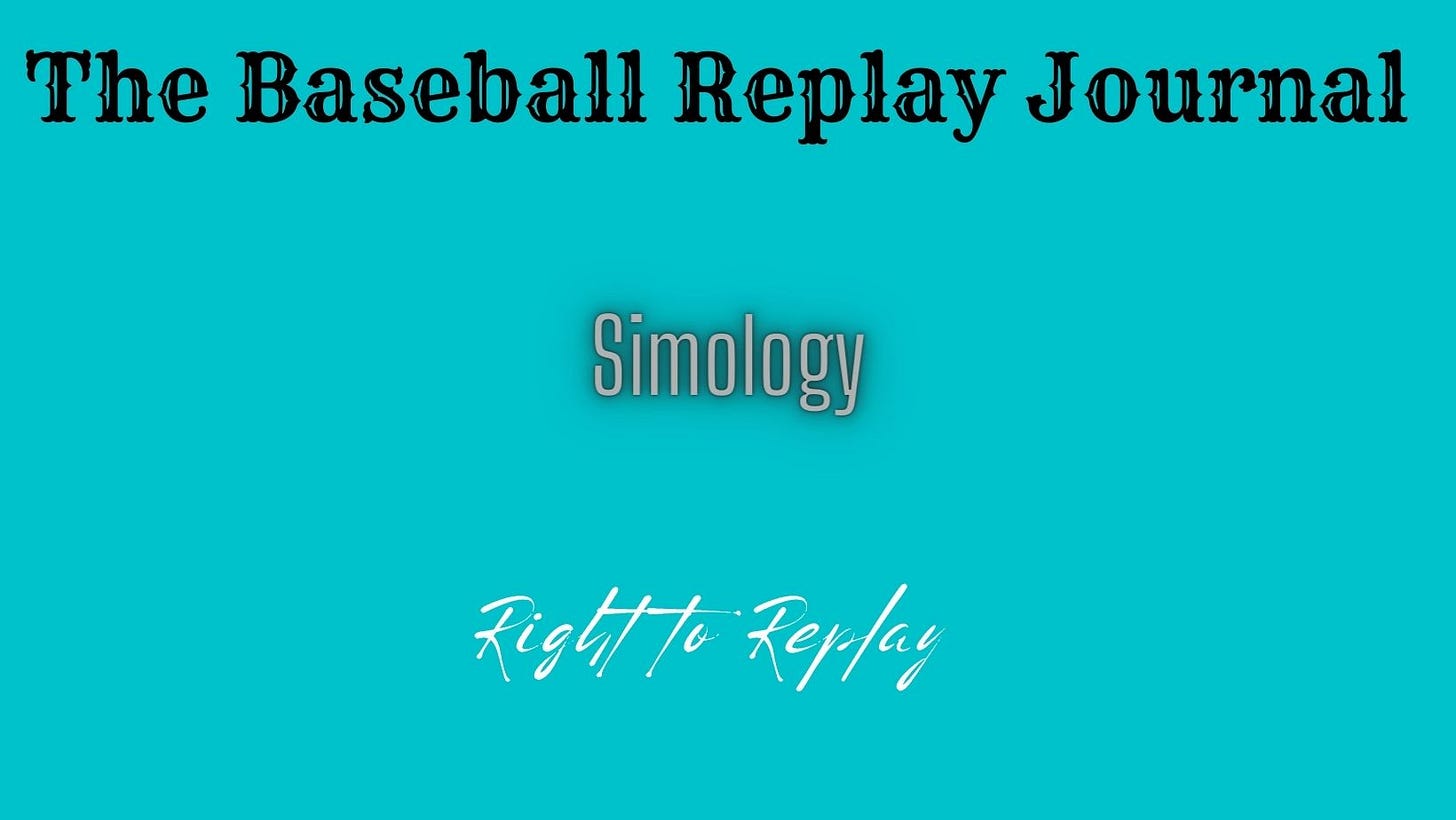Right to Replay
A few weeks ago I wrote a post about OOTP deciding to forcibly change player saves that included copyright Nippon Pro Baseball (NPB) team information.
Believe it or not, I’ve got a little bit more to say on the issue.
Whose Game Is It, Really?
I started thinking about the OOTP issue just the other day, after watching this excellent Louis Rossmann video:
You may or may not agree with Rossmann’s political views, which honestly don’t bother me one way or another. I will say, though, that I agree wholeheartedly with Rossmann’s stance on Right to Repair, which is the right that purchasers of computer hardware and other expensive electronics have to be able to repair their devices.
There are some around who are old enough to remember the days of television repair shops. In fact, once upon a time burgeoning engineering students and tinkerers could visit their local Radio Shack stores to get the parts they needed to mess around with broken or faulty electronics of all types.
Those days seem to be largely gone, and I would argue that it’s not because of the raw cost of labor in the United States. As I’ve looked into the issue, it’s become more and more clear that major electronic products — computers, televisions, refrigerators, and even cars — are increasingly being made with proprietary parts and secret schematics. This makes repair nigh unto impossible after a certain point, leading me to wonder whether we are truly purchasing the products or just renting them for a little while.
So what does this have to do with OOTP?
It’s actually very closely connected. By suddenly and unalterably changing its users’ personal projects, OOTP has clearly signaled that it reserves the final say over how your project moves forward.
Is This Really A Big Deal?
But is this really a big issue?
Some would argue that it is not. I posted briefly about it on Table Top Sports a few weeks back. One poster pointed out (correctly) that the change didn’t impact saves that had a completely fictional Japanese league. The implication here is that there’s nothing to see: the only people that should be upset are those who had in-game worlds with copyright NPB team names.
Of course, this poster neglected to mention the fact that the default settings of OOTP included real-life NPB teams and players. In fact, creating completely fictional yet believable OOTP leagues is a very time-intensive process. In other words, this change isn’t just a small and meaningless alteration that impacts nobody.
In fact, as I predicted, the fallout from this action has not yet ended. There have been recent threads asking for unofficial forums, and the OOTP subreddit constantly sees new posts begging for ways to undo the update.
There is also an issue that remains unaddressed: namely, what in the world the NPB team names and real players were doing in OOTP in the first place.
If you’re a fan of sports strategy games, you know as well as I do that most games do not include real team names. Users are usually given the option to add in team names by hand at their own discretion. When I set up my 1980 Cleveland Browns Action! PC Football Replay, for example, I took a few minutes to type in every team name by hand. It’s not an arduous process, but it is a reflection of the legal world that we live in.
Now, you don’t have to do this in OOTP for American teams, since it has the MLB and MLBPA official licenses. However, you might have forgotten that this is a relatively recent development. That happened only in January 2015, as a matter of fact.
I remember my first experience with OOTP, which came back in 2013. Back then the historical MLB data that you could use came from the Lahman Database, which was 100% user created with no official support. In fact, in those days you could choose from a number of different databases, including databases that have since become the stuff of legend, such as the Spritze High School Debut database (which sadly no longer works). Modern OOTP players might be surprised to learn that the game originally allowed widespread database modification and tinkering, and that it became closed only after the official licenses came aboard. In fact, OOTP still runs an official database modification forum, which is filled with tumbleweeds, of course.
I don’t know this for certain, but I very strongly suspect that OOTP’s current official database is simply an expanded version of one of the old user databases. Having poked around inside using a tool or two, I’ve discovered a few issues, as well as a confusing mess of information.
Now, OOTP must have known than it did not have legal permission to use official Japanese team and player names. After all, it knew that it did not have official permission to use official MLB and minor league team names before 2015; that’s why you had to download unofficial databases to get that functionality in those days. If that’s the case, why in the world did OOTP persist in offering real life Japanese teams and players? Why did this issue even have to come up in the first place?
Industry Leader
It’s no secret that OOTP is currently the industry leader. If you ask for a good baseball simulator on r/baseball, most (if not all) respondants will tell you to go for OOTP.
But is this sustainable in the long run? Will another game step up to capitalize on the confusion and frustration that OOTP has caused here? And, above all, when will OOTP players stop accepting the game’s questionable simulation results as “fun” and start looking for something with a more realistic game engine?




